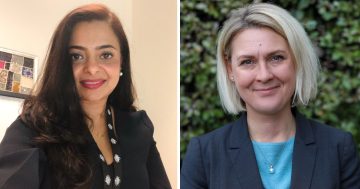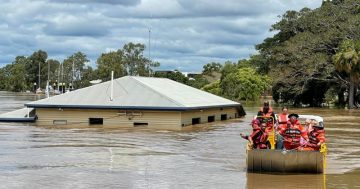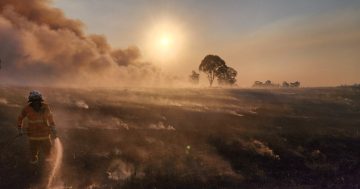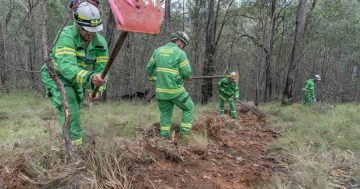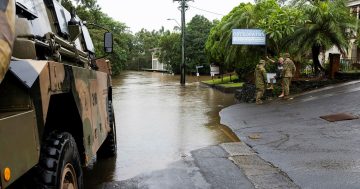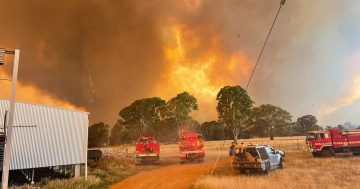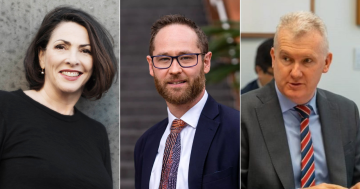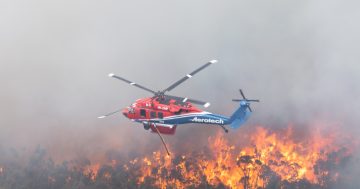 1. This week 10 years ago, the peak body for emergency services, the Australasian Fire and Emergency Service Authorities Council (AFAC) admitted that extreme climate conditions will require emergency services to be better prepared.
1. This week 10 years ago, the peak body for emergency services, the Australasian Fire and Emergency Service Authorities Council (AFAC) admitted that extreme climate conditions will require emergency services to be better prepared.
AFAC said emergency services would need to “plan strategically to identify how they would cope with the projected increase in frequency and intensity of extreme weather”.
It said that although increasing interstate support and staffing would be important, emergency services may be unable to respond to many major, concurrent incidents across Australia and New Zealand.
“If a larger number of more intense extreme weather events are experienced in the future, people must understand that fire and emergency services cannot insulate communities from their impact,” AFAC said.
2. Analysis by the Department of Finance and Deregulation revealed that more women were sitting on the boards of the Commonwealth’s eight Government Business Enterprises than ever before, with female representation at 41 per cent.
Minister for Finance and Deregulation, Senator Penny Wong said underrepresentation in the past was “a startling imbalance the Government firmly believed needed to be addressed”.
Minister for the Status of Women, Julie Collins said Government could lead by example when it came to increasing board diversity.
“By improving the gender balance on government boards, the Government can effect positive change across all sectors,” Ms Collins said.
“Evidence shows that having a good balance of men and women in leadership positions results in more informed decision-making and better outcomes.”
3. Victoria’s State Services Authority (SSA) was recognised by ARTDO International (formerly the Asian Regional Training and Development Organisation) for its “invaluable role in strengthening Victoria’s public sector”, receiving its 2013 Human Resource Development Excellence Award.
Secretary-General of ARTDO International, Bernardo Ople said the board was greatly impressed with the invaluable role played by the SSA in fostering a culture of continuous improvement in service delivery, workforce development and the governance of public utilities.
Mr Ople said the SSA supported public sector employers in tackling a wide range of workforce issues and collaborated with local, national and overseas public and private sector organisations to research, develop and deliver programs and resources.
4. The University of Queensland (UQ) Institute for Molecular Bioscience opened its new Solar Biofuels Research Centre to develop microalgae-based systems as a source of clean fuel.
Queensland Premier, Campbell Newman said the project had potential to benefit regional and rural communities through developing economically viable methods of producing biofuels and other commodities including animal feed, and a biofuels industry would create new jobs in the State’s biotechnology sector, which already employed almost 10,000 people.
Vice-Chancellor of UQ, Professor Peter Høj commended the Government and industry for investing in an emerging area of research and development with the potential to deliver economic, social and environmental dividends.
5. ANU academic Professor Ian McAllister warned against lowering the voting age in Australia, saying the arguments to do so did not stack up.
In a research report, Professor McAllister said the main arguments for dropping the age focused on the need to bring voting into line with other government-regulated activities and to reverse the decline in civic engagement.
He said his study found that enfranchising Australia’s 500,000 16 to 17-year-olds would not significantly increase political participation or enhance fairness and there was no evidence that increasing education within the electorate was generating more politically mature younger voters.
“Political interest among young people remains at a low level despite increased interest in the electorate as a whole,” Professor McAllister said.
6. CSIRO, Marine Innovation Southern Australia (MISA) and BP Developments Australia announced a unique research program to improve understanding of the environmental, economic and social values of the Great Australian Bight.
Spokesperson for the CSIRO, Dr David Smith said the $20 million project would obtain information about the unique marine environment and potential marine resources within the Bight and would provide information to decision-makers to support sustainable development in the region and monitor possible future impacts.
“The Science Program will be one of only a few whole-of-ecosystem studies undertaken in Australia,” Dr Smith said.
“It will provide vital knowledge to inform future decisions for sustainable development in the region.”


